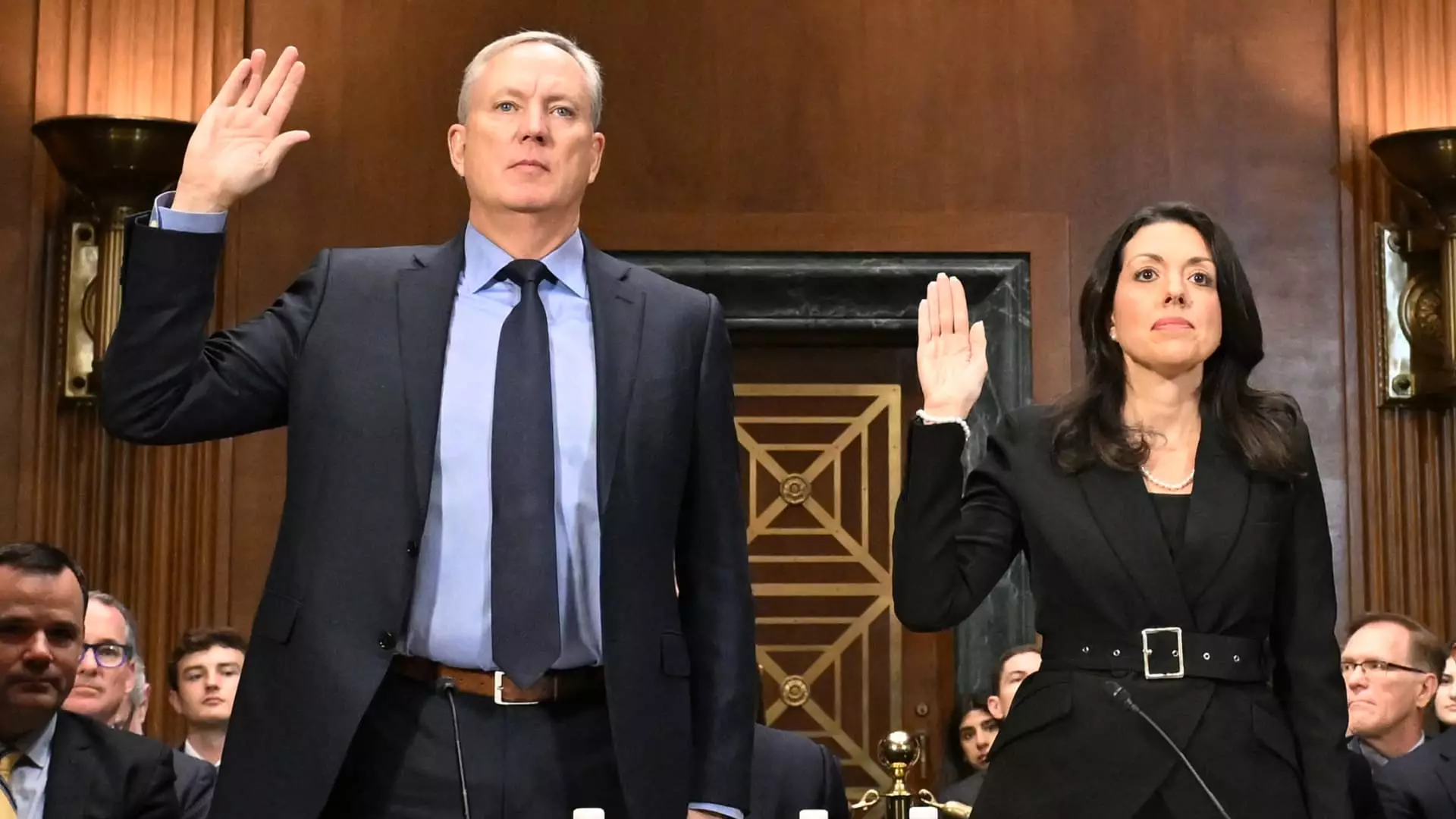In a landscape increasingly dominated by digital payments, the recent Senate Judiciary Committee hearing on the Visa-Mastercard duopoly sheds light on the challenges faced by small businesses amid soaring interchange fees. The bipartisan concern among committee members underscores the growing frustration toward these industry titans, which collectively control a staggering 80% of the market and possess a market valuation surpassing $1 trillion. The impact of their dominance reverberates throughout the retail sector, provoking calls for reform and challenging the status quo of payment processing.
Interchange fees, or swipe fees, represent a significant cost incurred by merchants each time a credit card transaction is made. These fees, which facilitate the transfer of funds from customers to retailers, disproportionately affect small businesses. In 2023, Visa and Mastercard reportedly charged businesses over $100 billion collectively in credit card fees, an expense that many merchants cite as one of their largest operational costs. This growing financial burden raises questions about the sustainability of such high fees and the consequences for consumers, who ultimately bear the brunt through elevated prices.
Committee chair Senator Dick Durbin’s acknowledgment of the “odd grouping” of conservative and liberal members united by this issue highlights the nonpartisan appeal for actionable solutions. The proposal for the Credit Card Competition Act aims to dismantle the apparent monopoly held by Visa and Mastercard, mandating that banks with assets over $100 billion provide at least one alternative payment network. This initiative seeks to empower small businesses and provide them with real options to mitigate the costs associated with credit card transactions.
Responding to the committee’s scrutiny, Visa and Mastercard defend their fee structures as necessary for sustaining the services they provide. Bill Sheedy, a senior advisor to Visa’s CEO, argued that interchange fees act as incentives for adopting new technology aimed at reducing fraud and improving transaction efficiency. While this perspective may have merit, it appears disjointed from the pressing realities faced by retailers struggling under the weight of these fees.
Moreover, executives from both companies cautioned that the proposed legislation could stifle consumer choice and detract from competition in the payments landscape. They pointed to historical precedents whereby regulation led to adverse outcomes for consumers, such as the reduction of debit card rewards following the Dodd-Frank Act amendments in 2010. This claim raises a legitimate concern regarding the balance between regulation and market health—though it also appears to serve as a defense of current practices that many deem exploitative.
The Retail Sector’s Perspective
From the viewpoint of retailers, the high costs associated with interchange fees translate directly into elevated prices for products, contributing to inflationary pressure on consumers. The National Retail Federation emphasizes that relieving these financial burdens through legislative reform would foster a more equitable marketplace. Professor Roger Alford of Notre Dame University reinforced this sentiment by highlighting the substantial monetary impact of swipe fees on average American households, which spend over $1,100 annually on these costs alone.
This profound reflection prompts deeper questions about consumer awareness and the unseen leaks in household budgets attributable to these fees. Many consumers may not recognize that the prices they pay at the register are influenced by a convoluted financial ecosystem largely dictated by a few powerful players. If the Credit Card Competition Act succeeds in fostering a more competitive environment, it could provide various benefits, including increased transparency and potentially lower consumer prices.
As the debate surrounding the Credit Card Competition Act unfolds, it is crucial to maintain an open dialogue between stakeholders. Visa and Mastercard’s recent attempts to reach a $30 billion settlement to lower fees for retailers signal their awareness of the mounting criticism. However, the rejection of that settlement by a federal judge suggests that the path toward change may be fraught with obstacles.
The Justice Department’s ongoing scrutiny of Visa’s practices further complicates the situation, adding legal pressures that may drive significant changes in how payment networks operate. As policymakers seek to balance the need for consumer protection with the necessity of fostering innovation, the outcomes of these discussions hold significant ramifications for the industry and its customers.
The conversation surrounding interchange fees and credit card market practices reflects broader themes in the modern economy. As legislators grapple with potential reforms, it remains paramount to consider the long-term impacts on both consumers and businesses alike. The stakes are high, and the implications of this legislative push could reshape the entire landscape of payments in America.

